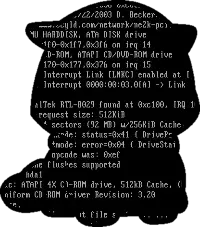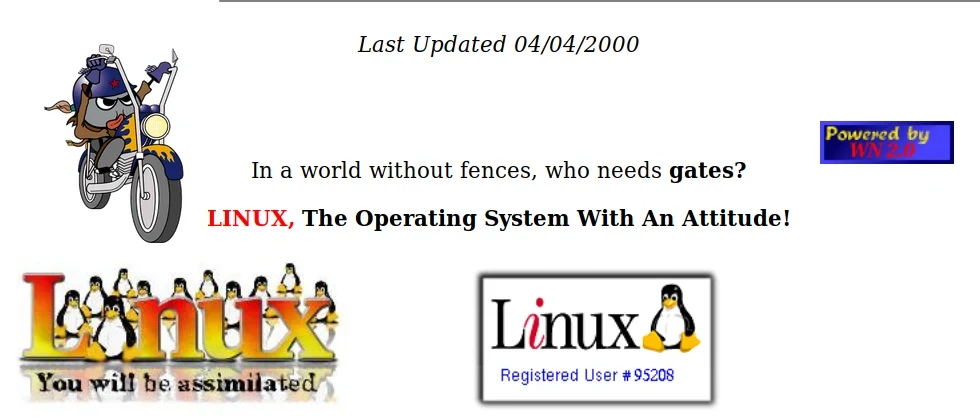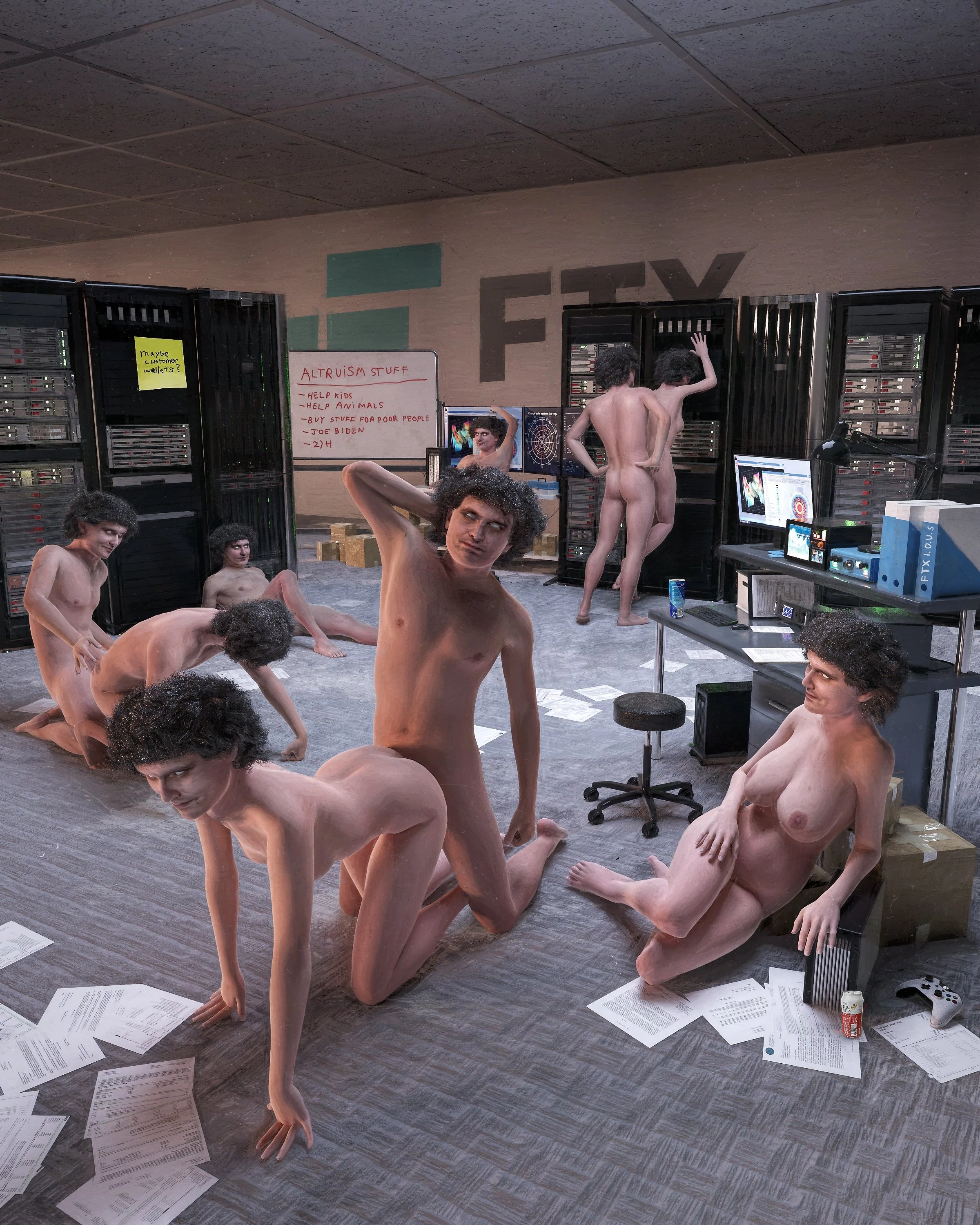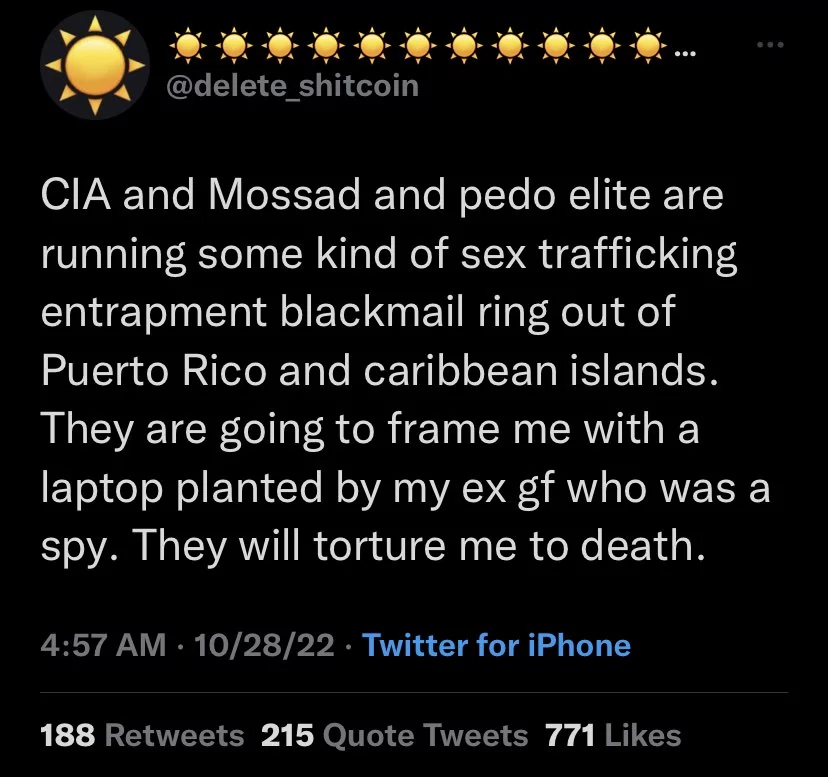- 27
- 86
- 8
- 16
- 10
- 12
Inside Elon Musk’s first meeting with Twitter employees
With Twitter staff still reeling from mass layoffs and executive resignations, Musk took questions from employees for nearly an hour. Here’s everything he said.
By ALEX HEATH
Updated Nov 10, 2022, 7:16 PM MST
With barely 20 minutes' notice, Elon Musk gathered Twitter employees on Thursday to address them directly for the first time.
During a nearly one-hour Q&A session, which The Verge obtained a recording of — you can read a full transcript below — Musk was blunt about Twitter’s financial state, his ambition to turn Twitter into an app for payments, his love for “gizmos,” and that he now expects employees to work with a “maniacal sense of urgency.”
Elon Musk spoke about offering banking services via Twitter:
I think there’s this transformative opportunity in payments. And payments really are just the exchange of information. From an information standpoint, not a huge difference between, say, just sending a direct message and sending a payment. They are basically the same thing. In principle, you can use a direct messaging stack for payments. And so that’s definitely a direction we’re going to go in, enabling people on Twitter to be able to send money anywhere in the world instantly and in real time. We just want to make it as useful as possible.
And later offered more detail:
If you can simply have one balance on Twitter that can simply go positive or a negative, and when it goes positive, the interest rate is better than what you could receive elsewhere, and when it goes negative, the interest rate is lower than what you see elsewhere, now you have a much simpler system.
Then you attach a debit card to the Twitter account so that you have backward compatibility into the payments system because not everyone will accept Twitter. So if they have above a certain balance, you automatically send people a debit card. You want backward compatibility to the existing financial infrastructure.
In the US, there’s still a small number of checks that are used. So if your landlord is demanding that you send a check, you have to have some non-zero number of checks. Then we would send a small number of checks to those that need to have checks. Then you add automatic payment. Then over time, you basically address what are all the things that you’d want from a finance standpoint. And if you address all things that you want from a finance standpoint, then we will be the people’s financial institution.
What circumstances could lead Twitter to declare bankruptcy:
We just definitely need to bring in more cash than we spend. If we don’t do that and there’s a massive negative cash flow, then bankruptcy is not out of the question. That is a priority. We can’t scale to 1 billion users and take massive losses along the way. That’s not feasible. I don’t think we will.
Twitter’s remote work policy:
Now, if somebody’s contribution is so significant that they can overcome the communication difficulties of being remote, then they should absolutely remain at Twitter. But it will be a higher bar. They have to be that much better to overcome the communication issues of being remote. There are plenty of people at Tesla and SpaceX that do work remotely, but it is on an exception basis for exceptional people. And I totally understand if that doesn’t work for some people. That’s the new philosophy at Twitter.
Let me be crystal clear. If people do not return to the office when they are able to return to the office, they cannot remain at the company. End of story.
Basically, if you can show up in an office and you do not show up at the office, resignation accepted. End of story.
And Twitter’s potential as a TikTok-like platform for shortform video:
But right now, content creators cannot post the length of video that they would like to post, and they cannot monetize it, which means they cannot pay the bills. These are not like super complicated things. They’re pretty basic. We’re not trying to put YouTube out of business, but I’m just saying, do we really need to give YouTube a whole bunch of free traffic? Maybe not. So at least give creators the option if they would like to put their video on Twitter and earn the same amount as they would, or maybe slightly more, on YouTube or TikTok or whatever the case may be.
I was actually flipping through the Twitter video where, once you go into kind of a full-screen video mode, you can just start flipping through videos. It’s actually not bad. I was like, “Okay, well, it’s pretty good.” I think building on that makes a ton of sense.
How do we start the creator flywheel if we don’t have video ads to begin with? This is where subscriptions come in because YouTube also has subscriptions, and they don’t show ads in subscriptions. So I think this is a case where it does make sense to start spending some money and at least matching to slightly better than matching creators on YouTube and saying, for now, we’ll just pay them money that is reasonably competitive, maybe slightly better than YouTube for their content on Twitter as well.
Twitter’s first couple of weeks under Musk’s ownership have been nothing short of tumultuous. They started with Musk unceremoniously firing much of the C-suite and laying off roughly half of Twitter’s global workforce. He revamped Twitter Blue to automatically give paid subscribers a blue verification check mark, which quickly led to impersonation running rampant on the social network.
Executives continue to resign, including the heads of trust and safety and ad sales, both of whom Musk elevated after he took over and both of whom left Thursday. A lawyer at the company has told employees to seek whistleblower protection “if you feel uncomfortable about anything you’re being asked to do.” Meanwhile, Musk has tried to convince Twitter’s advertisers to return amid the chaos to no avail, even as the company’s user growth sees “all-time highs,” according to him.
Do you know more about what’s going on inside Twitter? If so, I’d love to chat confidentially. You can reach me via email: [email protected] or through the contact form on my Linktree. Then we can set up a secure thread on Signal.
Below is a transcript of Musk’s first all-hands meeting with Twitter employees, lightly edited for clarity:
Elon Musk: Hello. Nice to meet you all. I’m very excited to be here, and I think the long-term potential for Twitter is immense. I think you’ve heard, perhaps, some of the things that I’ve said publicly, and I think what you’ll find is that the things I say publicly are the same things that I say privately.
I think Twitter can perform an incredibly valuable service to the world and be the public town square where people exchange ideas and where, once in a while, they change their mind. And where you have a battleground of ideas that can hopefully take the place of the violence in a lot of cases. So people can just be talking instead of physically fighting. I think we could actually be a force for peace, which would be amazing. I think there’s a tremendous amount of good that Twitter can achieve for humanity. And that’s what we’re going to strive for.
So in order for us to achieve that good, how do we get a lot of people on the platform? There are 8 billion humans. If we don’t have at least a billion humans on the system, then we have a very small percentage of humans. So we want to have, you know, a reasonable percentage of humans. This is not for the sake of money or anything like that. It’s just in order to do a lot of good, we need a lot of people on the platform and a lot of people talking.
I think it would be really interesting to get more dialog between countries and to surface tweets that are interesting. We have an amazing market share in Japan. There are probably in any given day some super interesting tweets that are happening in Japan, but we never see them in the US or almost never see them. It would be, I think, very exciting to take tweets from different countries and different language groups and expose people from different countries and different language groups to ideas that are interesting, entertaining, funny — where you learn something from around the world. So I think we’ve got a great potential to connect people around the world and expose them to, like I said, ideas and content that’s going to entertain them. If we can take the most interesting, entertaining, funny stuff from around the world and show people that, it’s going to be great.
And we also want to expand to be sort of a multimedia platform. We are that to some degree. We are the strongest when it comes to anything that’s writing and real time. But we also want to have that for pictures and video and not in a way that copies what others do. I don’t think we should not copy something just because someone else did it. We just want to focus on how we make Twitter as compelling as possible, where it’s maximum enjoyment, maximum learning. Where you spend an hour on Twitter, and you don’t regret it. Sometimes, you know, on some of the social media platforms, you might spend an hour, but you, like, kind of regret that, right? Not naming names but, you know, it’s like you want to spend an hour and be like, “Wow, that was a great hour.”
I think there’s this transformative opportunity in payments. And payments really are just the exchange of information. From an information standpoint, not a huge difference between, say, just sending a direct message and sending a payment. They are basically the same thing. In principle, you can use a direct messaging stack for payments. And so that’s definitely a direction we’re going to go in, enabling people on Twitter to be able to send money anywhere in the world instantly and in real time. We just want to make it as useful as possible.
As a general principle, if we are solving the reasons that people click away from Twitter not to trap people on the site... You know, let’s say somebody is a content creator on YouTube. Provided they are able to post their video on Twitter and monetize the video at least to the same degree as on YouTube, then naturally, they would just post their video on Twitter as well. But right now, content creators cannot post the length of video that they would like to post, and they cannot monetize it, which means they cannot pay the bills. These are not like super complicated things. They’re pretty basic. We’re not trying to put YouTube out of business, but I’m just saying, do we really need to give YouTube a whole bunch of free traffic? Maybe not. So at least give creators the option if they would like to put their video on Twitter and earn the same amount as they would, or maybe slightly more, on YouTube or TikTok or whatever the case may be.
Anyway, I think the future is super exciting, and I look forward to making it happen with you guys.
Moderator: [Inaudible] ... and other kinds of challenges that we’re already facing, even with the user base at its current size.
Musk: So the question is how to make sure that the growth does not outpace the risk?
Moderator: Yeah.
Musk: Well, I’m obviously a big fan of getting people to be verified, leveraging the payment system and iOS and Android security. I think we want to have automated checks as well as manual checks. I’m open to ideas here. We will obviously care about real user growth, not anything that appears to be user growth that is not. We care about authentic users. And I think as long as we’re taking steps to authenticate real users and exiting ones that are not good, and that it is expensive and difficult to create bot armies, we will succeed.
The issue without payment verification, especially without having a phone and a card, is that you can do a million bot accounts a day and with the cost of a tenth of a penny. It’s not so much the $8 because, obviously, state actors have more than that. But can they put together a million phones and a million credit cards? That’s much harder. That’s where they’re going to stumble.
Inaudible question about reviving Vine.
I think it’s really just, do we have compelling shortform video as opposed to exactly what Vine was? It’s not “let's copy Vine from whichever year with ancient code.” It’s really just, how do we have compelling shortform video, just compelling content in general? I was actually flipping through the Twitter video where, once you go into kind of a full-screen video mode, you can just start flipping through videos. It’s actually not bad. I was like, “Okay, well, it’s pretty good.” I think building on that makes a ton of sense.
I told a whole bunch of people this morning that I was on it for like maybe 15 minutes, and I could have easily been on it for half an hour. The videos that it showed me were interesting. It was some good videos. And when I told a roomful of people that this morning, they didn’t know it existed. So I think if we try to surface it and make it more obvious that it exists, that would be a good move.
Inaudible exchange with an employee.
You know, I’ve got no problem with battle, obviously [laughs]. Yeah, just email it to me. I’m pretty responsive on email. Every now and again, it’s a crisis, and if I didn’t respond within 24 hours, email me again. It rarely takes me longer than 24 hours to respond. Usually it’s within hours. And I’m also for like, “Hey, let’s have some fun and let’s have some adventure here.” Let’s just try some crazy stuff. And if it doesn’t work, we’ll stop it. And if it does work, we’ll amplify it. But I think that’s really fun and exciting.
Just try weird stuff. It’s nothing ventured, nothing gained. If we’re too cautious, then how do we make revolutionary improvements? Revolutions are not done with caution. So we want to try things, ideally things that don’t break the whole system, but I think as long as we’re agile and we react quickly to improve things and correct mistakes, I think it’ll be fine.
Let’s just get a bunch of content creators that we think are cool on YouTube and say, “Hey, would you consider putting your content on Twitter, and we’ll pay you 10 percent more than YouTube and see how it goes?”
Inaudible question from an employee.
We need some video ads is what you’re saying. It’s hard to register video ads if we don’t have video ads. It’s a great question. How do we start the creator flywheel if we don’t have video ads to begin with? This is where subscriptions come in because YouTube also has subscriptions, and they don’t show ads in subscriptions. So I think this is a case where it does make sense to start spending some money and at least matching to slightly better than matching creators on YouTube and saying, for now, we’ll just pay them money that is reasonably competitive, maybe slightly better than YouTube for their content on Twitter as well. And I think as we build our subscriber base, because YouTube is doing the exact same thing, they’re building a subscriber base.
I actually try to use YouTube as a nonsubscriber to just kind of get a feel for what’s going on with advertising. Frankly, I find their advertising to be brutal. It seems to be one scam ad after another.
Inaudible interjection.
YouTube has 2.6 billion users? Oh man, we’re nothing!
Employee: Yes, and only 80 million subscribers.
Musk: [Laughter] That’s a lot. Look, my kids were basically educated by Reddit and YouTube, which, like, uh-oh. I think let’s just try it. Let’s just get a bunch of content creators that we think are cool on YouTube and say, “Hey, would you consider putting your content on Twitter, and we’ll pay you 10 percent more than YouTube and see how it goes?” Let’s do that. Okay, great. So you will do that?
Inaudible exchange.
Okay, collectively, you’ll do it. Great. Please do it. Let’s take action. I’m a big believer in having just a maniacal sense of urgency. So if you can do it after this meeting, I would do it after this meeting. Just a maniacal sense of urgency. Like, if you want to get stuff done, maniacal sense of urgency. Just go “aah!” Hardcore!
Employee: So on the subscriber part, it’s $8 right now, right?
Musk: Oh. Really? [Laughter]
Employee: I know your purpose is to get people verified. Are we open to micropayments and other things to get people verified?
Musk: It’s definitely just one step at a time. I intentionally limited things to only iOS, and just a small number of countries, to not have a massive amount of fraud that our systems... that we couldn’t handle. So the hardest thing to commit fraud on right now, relatively speaking, is if you require a phone and a credit or a debit card.
And so then we’re piggybacking over the payment system as well as Apple. This doesn’t mean it’s impossible to scam. Obviously, it’s still possible, but it is very difficult to scam at scale. They can do individual accounts, but they can no longer do a million accounts.
With the web, you don’t want someone taking a million credit card numbers off the dark web and then spawning a million instances that appear to be individual users going a zillion proxies around the world. And then we’ve got a million fake accounts. That’s why web is going to be last, and we’ll do that with great caution. And there are just some bugs in the system, and people need to download the latest version of Twitter.
We’re still, I think, giving people a country error, which is kind of embarrassing. US users are getting a country error, which is incorrect. It actually should be “You have the wrong version of the Twitter app” error. So just like stuff like that. That’s why it’s been a relatively soft launch, and I have not tweeted from my main account, “Sign up for Twitter Blue.” It was very intentional.
Employee: I have a follow-up question. When we talked about followers, subscribers. I think Jack [Dorsey] had an interview about two or three years ago talking about how he regrets having the follow button. What’s in your vision about this, and do you think that’s something we will want to curate because we do want to promote creators?
Musk: I think “subscriber” or some other word would probably be a better word than “follow” because “follow” sounds more like, do you have a cult or something? And I'm like, I guess I kind of do have a bit of a cult, but like, not everyone wants to be a cult member, you know?
So it’s more like, I’m interested in what the person or entity has to say. So that’s why I’m following them. But I’m not really just their minion. I’m just interested in what they have to say, and I may agree or disagree with it. So I think “follow” is probably not the ideal term. And I hate “super follow” because it just sounds like a superfan, like I’m your No. 1 fan. It just sounds like, is this person going to stalk me and kill me? So “super follows,” I think we’re changing that term to “subscriber” or something. That’s a better term.
Employee: Do you want to reserve this graph of people together, like bulk subscribing to this person’s content?
Musk: I am very much open to ideas here. I wouldn’t say I’m stuck on anything. The following really just means that I think this person says interesting things, has interesting and maybe funny content. That’s why I want to see what they have to say. I'm not necessarily always agreeing with it or always thinking that the content is great. But this is how I want to spend time — listening, reading, hearing what this person has to say.
Employee: The reason why I’m asking is a lot of our technology is built toward that kind of graph, and that is where I think it’s a critical decision we have to make. I have one more: the home timeline. It’s very hard to gauge the intent of the user through just a general
- 11
- 21
 Why would Elon Musk do this???
Why would Elon Musk do this??? 
The job cuts of approximately 10,000, which would start as soon as this week, would focus on the company’s devices organization, retail division and human resources.
Amazon plans to lay off approximately 10,000 people in corporate and technology jobs starting as soon as this week, people with knowledge of the matter said, in what would be the largest job cuts in the company’s history.
The cuts will focus on Amazon’s devices organization, including the voice-assistant Alexa, as well as at its retail division and in human resources, said the people, who spoke on condition of anonymity because they were not authorized to speak publicly.
The total number of layoffs remains fluid. But if it stays around 10,000, that would represent roughly 3 percent of Amazon’s corporate employees and less than 1 percent of its global work force of more than 1.5 million, which is primarily composed of hourly workers.
Orange site: https://news.ycombinator.com/item?id=33595949
- 25
- 58
And we will finally stop adding what device a tweet was written on (waste of screen space & compute) below every tweet. Literally no one even knows why we did that …
— Elon Musk (@elonmusk) November 14, 2022
- 27
- 40
Sam Bankman-Fried stormed on to the US political scene with multimillion-dollar donations that led lawmakers, particularly Democrats, to believe he was ushering in the next generation of donors. But in a matter of days, his business empire collapsed into bankruptcy and the prospect of millions more in donations evaporated.
Before the fall of Bankman-Fried's cryptocurrency exchange FTX, the entrepreneur had emerged as the second-largest donor to Democrats after George Soros. He had vowed to give up to $1bn to political candidates linked to causes he supported, a pledge from which he later backed away.
He also became one of the most prominent crypto representatives in Washington, supporting digital asset legislation and hiring former regulators as advisers.
Bradley Beychok, co-founder of the Democratic super political action committee (Pac) American Bridge 21st Century, said Bankman-Fried "came on the scene out of nowhere [and] became a large supporter of different causes and candidates very quickly," adding that he had built an "organised campaign".
But a liquidity crisis that has forced the 30-year-old's $32bn business empire into bankruptcy has erased a potential pool of funds linked to a seemingly reliable player in an often volatile industry.
"Sam didn't live up to his commitments," said one Democratic lobbyist working in the crypto space. Bankman-Fried's grand spending promises had been "more bluster than action", the lobbyist added.
The entrepreneur was the second-largest donor to Democratic-leaning groups during the latest midterm elections, spending $36mn. Soros spent $126mn, but the Pac he supported with that large donation only spent about $15mn this cycle.
The majority of Bankman-Fried's donations, about $27mn, went to the Protect Our Future Pac, which supported candidates that prioritised pandemic prevention, one of his interests. It endorsed 25 Democrats in congressional races this cycle, of which 18 have so far won their respective races. Chief among these were Virginia representative Abigail Spanberger and Florida representative-elect Maxwell Frost, who at 25 will be Congress's first Generation Z member.
While the volumes pledged were akin to those given by longstanding corporate titans, some argue Bankman-Fried's donations were not entirely effective.
In Oregon's sixth congressional district, Bankman-Fried's super Pac spent a whopping $11mn on Carrick Flynn, a pandemic researcher and first-time congressional candidate who failed to advance to the election.
Some lobbyists and donors said they suspected Bankman-Fried's primary goal in politics had been to further his crypto interests. During the 2022 cycle, Bankman-Fried donated $155,000 to rightwing Pacs: the Alabama Conservatives Fund, which backed Republican Alabama Senator-elect Katie Britt, a crypto supporter; and Heartland Resurgence, which backed Senator John Boozman of Arkansas, the top Republican on the Senate agriculture committee that oversees crypto. Bankman-Fried also gave to Debbie Stabenow, the committee's Democratic chair.
Both Boozman and Stabenow said this week that they would continue to support the Digital Commodities Consumer Protection Act, for which Bankman-Fried campaigned.
The FTX founder and the company's US counterpart FTX.US gave $3.5mn to the GMI Pac, which in turn transferred approximately $5.8mn to Web3 Forward Pac, a pro-crypto super Pac. Web3 Forward has supported the campaigns of Democrats, including Senator-elect John Fetterman in Pennsylvania and Oregon senator Ron Wyden, who chairs the powerful Senate finance committee.
During the election, Bankman-Fried sat out some high-profile races including Tim Ryan's failed Senate campaign in Ohio, although Ryan had sought to refine the country's infrastructure bill so as not to hit crypto groups.
David McIntosh, president of the conservative Club for Growth, which has opposed many of the policies that Bankman-Fried has advocated for, said the FTX founder had been "jumping with two feet" into the political realm.
But he added: "He didn't have very good political consultants . . . What Sam did was pick and choose individual targets and got involved in the primaries --- which didn't work," McIntosh said.
The entrepreneur also grew his profile in Washington by hiring former regulators to liaise with financial watchdogs, including Mark Wetjen, former acting chair of the Commodity Futures Trading Commission. FTX had submitted an application with the CFTC to automate risk management tasks in futures markets that are typically completed by brokers. Wetjen declined to comment.
The concerns over FTX's financial health and its links to Bankman-Fried's proprietary trading group Alameda Research that triggered a deluge of customer withdrawals from the exchange have also raised questions about the source of funds used for donations. The US Securities and Exchange Commission is investigating FTX over its crypto lending activities and management of customer funds, according to a person familiar with the matter.
But legal experts argue that even if these funds were proven to be linked to wrongdoing, there probably would be no legal basis for clawbacks.
James Cox, professor of corporate and securities law at Duke University, said this was due to the "bona fide" principle, which protects individuals who accept money with no knowledge it derives from illicit activity.
What could trigger refunds might not be the law, "but the question about how can the party overcome the opprobrium of being associated with ill-gotten gains?" added Cox.
Harking back to another business scandal that reverberated through US politics, John Coffee, a professor at Columbia Law School, said: "I do not see the political recipients of Bankman-Fried's donations as personally liable, but they may be embarrassed into returning these donations, just as many returned donations from the Sacklers," in reference to the family embroiled in the country's devastating opioid scandal.
But if lawmakers remain comfortable with Bankman-Fried and his donations do dry up, Beychok said this would not hurt Democrats, who had consistently out-raised Republicans in recent cycles.
"I rest assured that 2024 will be a spendorama and I don't think that anything that happens . . . with FTX is going to change that," Beychok said.
https://www.ft.com/content/428c7800-c72d-4c59-9940-4376fea6e263

- 3
- 25
FTX BOARD MEETING pic.twitter.com/fTGEhHRimz
— beeple (@beeple) November 14, 2022
for context: Sam Bankman Fried, the mastermind behind FTX is a polyamorous jew in a san francisco exclusively jewish polycule filled with men and women that look like him.
- 33
- 21
Was 1TB this morning, now reports as 800GB.
Can't update to new release to see if the bug is fixed because Ubuntu's standard boot partion size of 511MB is too small to hold the new kernel and my current one
Fricking Ubuntu

- 10
- 10
Is there any app on window that will indicate if I wrote the word wrong that would work on lockdown browser ?
- 17
- 22
You LITERALLY moved 2.7 BILLION Tethers out of binance TRON cold wallet 2 into a wallet NOT listed as part of reserves within 24 hours of publishing the reserves.
— Deso, God of Vision - Now Patent-Pending! (@DesoGames) November 13, 2022
By his own admission now Binance isn't safe. This is the same telegraphing as SBF did.
Stay away from Binance! https://t.co/DjGCgOWJZd
Block explorer screenshot for nerds.
- 4
- 11
🚨 Bitfinex is levering ETH to maintain the Tether peg
— shadow (@0xmev) November 13, 2022
Bottom to Top:
1) Send a ton of ETH to hot wallet
2) Wrap ETH to be lent on Aave
3) Borrow USDC against wETH
4) Swap USDC for Tether in Curve 3Pool pic.twitter.com/mUkGAM1QOy
This single wallet has done well over 100 million of volume over the past 4 days... in a single direction
USDC -> USDT
Last time this wallet displayed this behavior, Tether was struggling in the wake of 3AC
Bitfinex has supplied over 300,000 ETH - in the past 3 days alone - to a hot wallet labeled "Maple Finance" on nansen_ai
The hot wallet swaps borrowed USDC for USDT in private transactions
- 21
- 31
Breaking: AAX, a derivatives exchange established in Hong Kong in 2019, suddenly announced that it would suspend all operations, including trading, withdrawals, etc. It will take 7-10 days to proofread and restore user assets. AAX's trading volume ranks in the top 20 in coingecko pic.twitter.com/D3h7RKTAIO
— Wu Blockchain (@WuBlockchain) November 13, 2022
- 11
- 12
A brilliant young cryptocurrency pioneer named Nikolai Mushegian tweeted on Oct. 28 that intelligence agencies were going to murder him — and was found dead on a Puerto Rico beach hours later.
“CIA and Mossad and p-do elite are running some kind of s*x trafficking entrapment blackmail ring out of Puerto Rico and Caribbean islands,” Mushegian, a developer of blockchain-based decentralized finance platforms who wanted to end global banking corruption, tweeted at 4:57 a.m. “They are going to frame me with a laptop planted by my ex [girlfriend] who was a spy. They will torture me to death.”
The 29-year-old then left his $6 million beach house in the luxe Condado area of San Juan, Puerto Rico, for a walk. A little after 9 a.m., a surfer off Ashford Beach, a spot considered so rife with riptides that local hotels warn against ocean swimming, discovered Mushegian’s body in the waves. He was wearing his clothes and had his wallet on him, sources told The Post.
News of Mushegian’s death, coupled with his last tweet and other, dark, posts about fighting “evil” people who were part of the “central banking cartel” — which he claimed, used “debt and blackmail” as weapons — have fueled conspiracy theories online and in the tight-knit cryptocurrency community in Puerto Rico.
“So Nikolai is still F–KING DEAD,” Ameen Soleimani, the CEO of Spankchain, tweeted Oct. 3. “My money is on him being murdered. He was found drowned 4 hours after his riskiest tweet ever. He had all year to drown randomly or be mugged, so it seems unlikely that his death was unrelated to his tweet…”
“Mushegian … tweets 4 days ago about CIA, Mossad and p-do elites and fearing for his life … Found dead yesterday … P-do elites are real … why Epstein suicided himself,” wrote Smoky Bear.
In September, Mushegian tweeted that there were “3 possible futures for me 1) suicided by CIA 2) CIA brain damage slave asset 3) worst nightmare of people who f–ked with me up until now, I am sure these are the only options.”
Mushegian was an early developer of Maker DAO, the largest decentralized finance (DeFi) protocol and was a key architect of stablecoin systems— currencies without government backing.
A person who knew Mushegian very well for years until they had a falling-out two years ago said that the developer was “very very smart” but also suffered from extreme bouts of paranoia.
“He had mental problems,” said the source, who spoke on condition of anonymity. “He saw a psychiatrist at times. He smoked a lot of pot. A tremendous amount.”
At the same time, the source said Meshugian was in communication with federal agencies, possibly including the CIA, but did not elaborate further.
“Some of his paranoia was based on fact,” the source said. “He’d discover things. He knew things. Nikolai got bored a lot with the mundane of life. He’d go after things, constantly putting himself in weird positions. It wasn’t for the money. He was interested in why things were the way they were and the corruption behind it.”
The source described Mushegian as a loner who lived alone with his dog, Sunny, after a bad breakup with the girlfriend he called a “spy” in his last tweet.
Another source said there is “no way” the ex-girlfriend was a spy. The Post has reached out to the presumed ex for comment.
“He was a very quirky guy,” the source added of Mushegian. “He and I spent a lot of time together and I knew everything about him. He came across as cocky and arrogant but that was just his autism. He was a big nerd but he wouldn’t let anyone bully him. He had a collection of guns — long guns, handguns, rifles. He liked guns and he knew he wanted to protect himself. Maybe he knew too much or he was going to expose someone. He said exactly what was on his mind. He had no filter.”
But Brock Pierce, the “Mighty Ducks” child star-turned-cryptocurrency billionaire who pioneered the mass move of cryptocurrency czars to Puerto Rico when he relocated there in 2017, knew Mushegian and believes the death was simply a tragedy that may never be solved.
Pierce told The Post that he and others in the community were initially very “confused” about what may have happened to Mushegian when they first heard about his death.
Then, after speaking with Mushegian’s Midwestern-based family and others at the funeral in San Juan, he said he came to believe the drowning was neither accidental nor the result of foul play — hinting that it was self-inflicted. Several sources said that Mushegian had been in such a “downward spiral” in recent weeks that his father had come to stay with him at his Condado home.
San Juan police told The Post that Mushegian’s death is still under investigation but is not considered a homicide at present.
“His mother clarified that his death had nothing to do with his [conspiracy] tweets,” Pierce said. “He was a beautiful man and a child at heart. He was also an incredible visionary, I don’t call people brilliant very often but Nikolai was brilliant. And brilliant people sometimes walk the edge of insanity.”
Pierce told The Post Tuesday that Meshugian’s parents, who immigrated to the US from Russia, said he had been sober for the past six months and might have misjudged the beach surf and have gotten accidentally swept up into the waves.
Cryptocurrency investor Michael Terpin, who was among the first wave of tech entrepreneurs to move to Puerto Rico even before Pierce, said he knew Mushegian and worked with him.
“He was a brilliant guy and I wouldn’t call him a tinfoil-hat kind of person at all,” Terpin told The Post. “This is right out of an episode of ‘The Blacklist.’ I know Nikolai liked to go meditate in the morning but I didn’t know him to be the type to go out swimming like that, especially in such rough water. I don’t see any way this could have been an accident.”
Another friend in Puerto Rico who spoke on condition of anonymity said many feared Mushegian committed suicide.
“He had stopped talking to people and gotten very reclusive,” the friend told The Post. “I think his mental health was getting worse and he wasn’t asking for help. He had closed himself off. I think, unfortunately, that his [last] tweet was a really bold way of bringing significance to a suicide. Like, ‘How can I bring some nobility and meaning to my death?'”
Mushegian, apart from his darkest tweets, had long positioned himself as someone helping bring a purer form of banking and finance to the world.
“Nikolai was working toward an incorruptible world and he wanted there to be a separation of banking and the state, just as there is a separation of church and state,” Pierce said. “He felt the world would be better off if central banks couldn’t print money and finance wars.”
Mushegian, a 2014 Carnegie Mellon graduate who donated $1.4 million to the school, often referenced the late Terry A. Davis, once called “God’s Lonely Programmer,” in his writings, as well as on his LinkedIn profile and website — sometimes even using Davis’ name as his own handle. Davis — who created and designed a complex entire operating system, Temple OS, by himself — had a small cult following but also suffered from serious mental health issues including schizophrenia.
Davis died in Aug. 2018 at age 48 after being struck and killed by a train in The Dalles, Oregon. The train engineer considered it a suicide, according to a police report.
“There was someone named Terry Davis,” Mushegian wrote in March. “Terry understood that the way big software companies made software was harmful to regular people. But he did not understand how to explain it to the people it was harming. To make sure he could never explain it in a way that people could understand, the people who wanted to create harmful software on purpose caused him to harm himself in ways he didn’t understand.”
Brock Pierce, who ran for president in 2020, told The Post he had never heard of Terry Davis but was adamant that Mushegian’s death was not at the hands of sinister forces.
“Intelligence agencies are not hunting down crypto pioneers,” he said. “If the government were knocking off people in this field, I would know.”
- 1
- 5
Orange Site:
https://news.ycombinator.com/item?id=33580366
Many researchers have conjectured that the humankind is simulated along with the rest of the physical universe – a Simulation Hypothesis. In this paper, we do not evaluate evidence for or against such claim, but instead ask a computer science question, namely: Can we hack the simulation? More formally the question could be phrased as: Could generally intelligent agents placed in virtual environments find a way to jailbreak out of them. Given that the state-of-the-art literature on AI containment answers in the affirmative (AI is uncontainable in the long-term), we conclude that it should be possible to escape from the simulation, at least with the help of superintelligent AI. By contraposition, if escape from the simulation is not possible, containment of AI should be, an important theoretical result for AI safety research. Finally, the paper surveys and proposes ideas for hacking the simulation and analyzes ethical and philosophical issues of such an undertaking.
- unbanvpns : FIX IT JANNIES OR IM NOT USING YOUR WEBSITE
- 39
- 40
Thankfully I switched locations. Not sure whether this is an rdrama or cloudflare thing.
- 3
- 17
Nick Percoco, the CSO of Kraken Exchange, tweeted just an hour ago in response to Mario Nawfal that the Kraken team now knows the identity of the user that hacked FTX.
We know the identity of the user.
— Nick Percoco (@c7five) November 12, 2022
Founder and CEO of IBCgroup.io, Mario Nawfal tweeted explaining that “the hacker is very likely an inexperienced insider.”
Community collective efforts
Satoshi Stacker, the well-established Youtuber, and crypto/NFT proponent also weighed in on the situation — explaining that “the FTX “Hacker” just funded his TRX wallet from Kraken.
BREAKING:
The FTX ”Hacker” just funded his TRX wallet from Kraken.
The same wallet that holds the stolen funds.
This means Kraken should have enough information to track down this individual/Individuals together with law.
If it’s Sam this is basically him not caring.
— Satoshi Stacker (@StackerSatoshi) November 12, 2022
Having used Kraken throughout the hack to offload the stolen funds, Know-Your-Customer (KYC) details were clearly enough for the Kraken team to identify the user.
Just keep digging
CEO and Co-founder of Hacken.io, Dyma Budorin, complimented Tobias Silver – founder of just.money – on his deep dive of the FTX Tron accounts.
Budorin determines that an “insider is behind [the FTX] rug pull / exit scam” as a result of the hacker’s incompetency.
TLDR: insider is behind @FTX_Official rug pull / exit scam
Great thread that proves to me that #ftx #hack is an insider job:
– too slow
– stupid mistakes
– kraken account involved
– hacker would have acted earlier
Great job @TobiasSilverJM to spot this https://t.co/h0PT8fBD9I
— Dyma Budorin 🇺🇦 (@buda_kyiv) November 12, 2022
Kraken will now likely be working together with law enforcement to track the identified individual.
More to come as the story unfolds.
https://cryptoslate.com/ftx-hacker-identity-discovered-by-kraken-exchange-team/
- 6
- 17
- 1
- 19
- 1
- 11
Like literally, nowhere 
Discuss
- 12
- 25
I'd give it at least 3-5 years before it collapses. And almost nothing of value was lost if it collapses.









































](/images/16684043316140692.webp)
](/images/16684044593233976.webp)





](/images/16683562421088357.webp)


](/images/16683349468453686.webp)






 How to Hack the Simulation?
How to Hack the Simulation? 





















